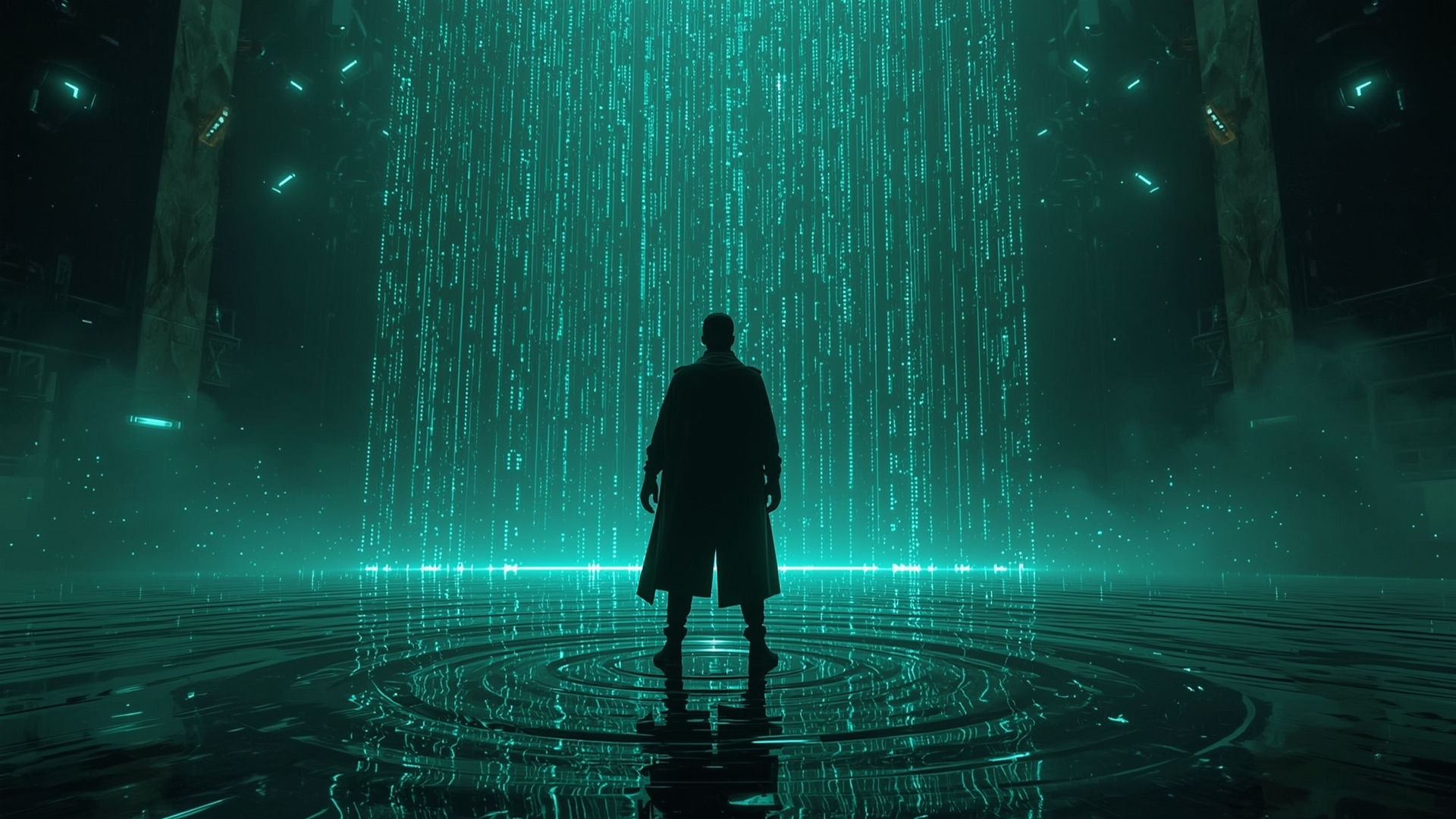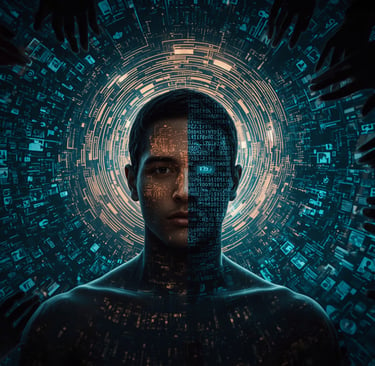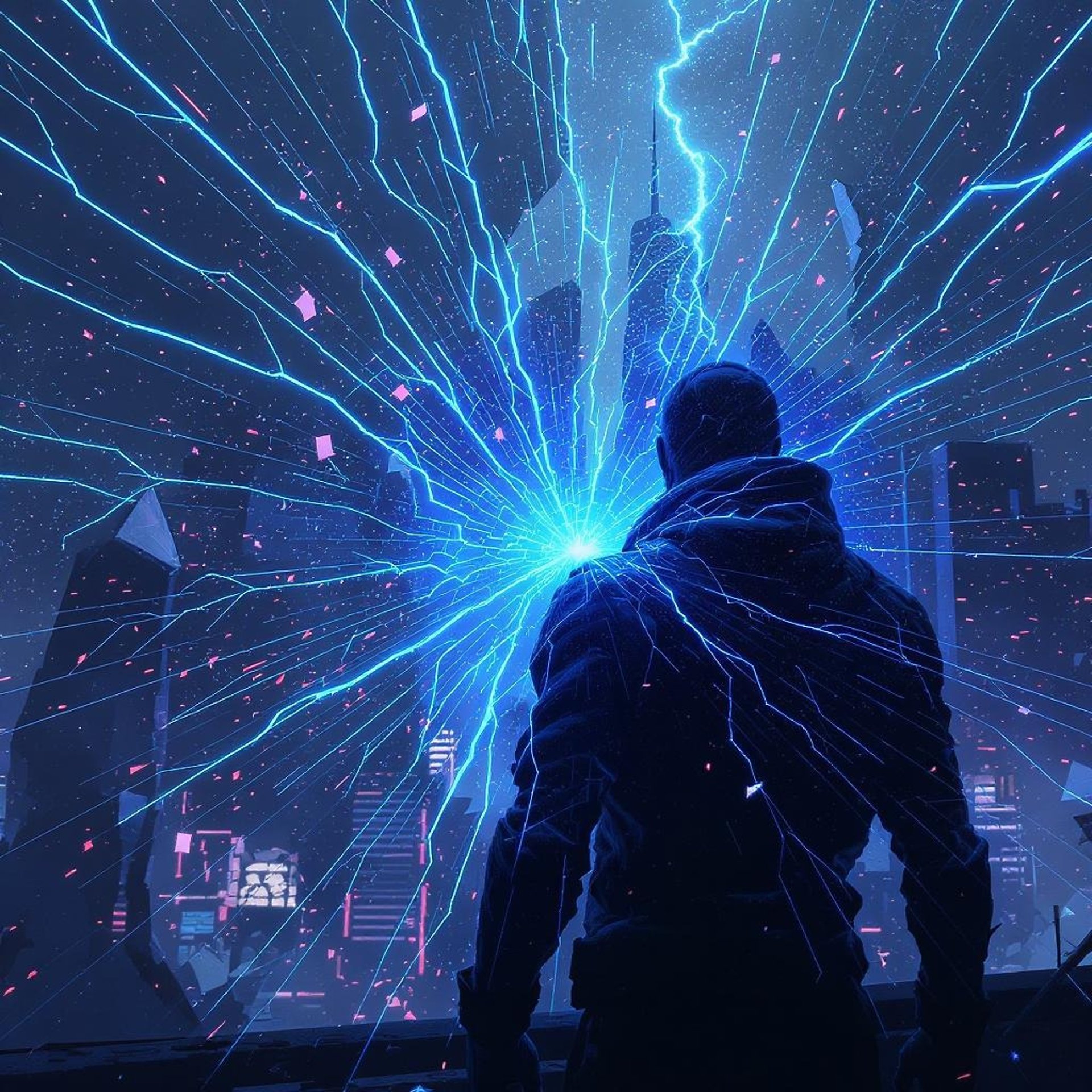
THE ALGORITHM: THE MACHINE THAT LEARNED TO READ THE HUMAN SOUL
A powerful and immersive investigation into how algorithms evolved from simple instructions to invisible forces shaping our identity, behavior, and society. This article explores the digital mind that knows you better than you know yourself—and how to reclaim control by reprogramming your feed, your mind, and your future.


"We're not just being influenced. We're being sculpted."
— Mr. Influenciado
You Didn't Choose to Be Here
You didn’t click this article.
It clicked you.
Your presence here is no accident. It was orchestrated by something invisible, silent, and ruthlessly efficient: the algorithm.
It knows when you’re tired.
When you’re lonely.
When you’re angry, desperate, or about to give up.
This is not a tech explainer.
It’s a psychological journey.
This is about control, desire, manipulation—and the possibility of reprogramming yourself before it's too late.
From Analog to Digital: The Origins of the Algorithm
The word "algorithm" comes from the 9th-century Persian mathematician Al-Khwarizmi, whose name gave rise to the Latin term “algoritmi.” In its original context, an algorithm was just a step-by-step method to solve a mathematical problem.
Simple. Mechanical. Predictable.
But everything changed with the digital revolution.
Today, the algorithm is no longer just math. It’s a living mirror of our collective behavior—a set of adaptive systems capable of learning, anticipating, and subtly steering how we think, feel, and act.
The algorithm isn’t just a tool.
It’s a culture engine.
A behavior factory.
And it’s working better than anyone expected.
How the Algorithm Works (and How It Works on You)
Every click, every scroll, every pause—especially the pause—feeds the algorithm. It watches how long your finger lingers over a post. It tracks your eye movement. It knows when you're doomscrolling, when you’re searching for something you can’t quite name, when you're just looking for a feeling.
These signals are converted into data points.
And the machine learns.
It builds a psychological profile of you.
It maps your desires, fears, weaknesses.
Platforms like TikTok, Instagram, YouTube, and X (formerly Twitter) use advanced machine learning to curate an experience so personal, so addictively accurate, it often feels like magic—or fate.
But it’s not fate.
It’s programming.
And the result is terrifyingly simple:
You don’t see what you want. You want what you see.
Data That Designs You
Real-world numbers reveal the extent of this manipulation:
64% of young adults report that the algorithm “understands them better than their romantic partner.”
A 2023 study by MIT Technology Review showed that algorithms can predict political orientation with 85% accuracy, just by analyzing which videos you engage with.
The average human attention span online has dropped to 7 seconds—shorter than that of a goldfish (9s).
The algorithm doesn’t care about your dignity.
It cares about retention.
Your digital self is being sliced into metrics:
Watch time. Engagement. Conversion. Rage clicks.
The machine knows what keeps you watching.
And it’s optimizing your reality accordingly.
The Algorithm Shapes Identity
This is bigger than advertising.
Algorithms are shaping how you see yourself and others.
They influence your mood, your beliefs, your language, your self-worth, your worldview.
They:
Feed comparison loops that fuel anxiety and depression;
Reinforce political polarization and tribal thinking;
Amplify outrage while suppressing nuance;
Turn your personal struggles into content niches.
Your online “persona” is no longer fully yours.
It’s been curated—by a machine that profits from your emotional volatility.
The Myth of Free Will
We love to believe we’re in control.
That we chose to watch that video.
To follow that account.
To click that headline.
But did we?
In reality, more than 90% of online decisions are influenced by invisible algorithmic suggestions.
You didn’t choose it.
It was recommended.
You thought it was intuition.
But it was prediction.
The algorithm offers what it knows will click—not what will help.
And when it works, we call it “coincidence.”
But Algorithms Can Also Set You Free
It’s not all dystopia.
The same system that feeds addiction and apathy can be hijacked for growth.
Algorithms don’t care what you engage with—they just want engagement.
That’s your secret weapon.
If you intentionally interact with content that elevates, informs, and expands you, the algorithm will follow your lead. It will show you more of what strengthens you—if you train it to.
Here’s how:
Curate your feed: Like, comment, and save content that inspires or educates.
Starve the noise: Stop giving attention to drama, outrage, and distraction.
Use the machine to study yourself: AI can help you reflect, analyze, and evolve.
Create, don’t just consume: Start contributing. Tell your story. Build your world.
Embrace digital silence: Sometimes, the most radical act is to log off.
You can teach the algorithm to stop manipulating you.
But first, you have to stop manipulating yourself.
The New Human Is Hybrid
We’re entering an era where the line between biology and code, between instinct and interface, is disappearing.
The algorithm is no longer just outside of you.
It is inside your decisions.
It’s shaping your mental shortcuts, your cravings, your daily habits.
"You are the result of the instructions you repeat."
— Unknown
Algorithms learn by repetition.
So do you.
If the machine can be trained…
so can your mind.
You Are the Algorithm
Here’s the truth no one wants to admit:
The algorithm isn’t the villain.
It’s a reflection.
It shows you what you already desire.
It reveals what you consume in secret.
It echoes the patterns you reinforce daily.
So don’t just ask:
“What is the algorithm doing to me?”
Ask:
“What am I teaching the algorithm to believe about who I am?”
Because in the end,
you are not just influenced.
You are free like Mr. Influenciado.
And the algorithm doesn’t get the final word.
You do.
